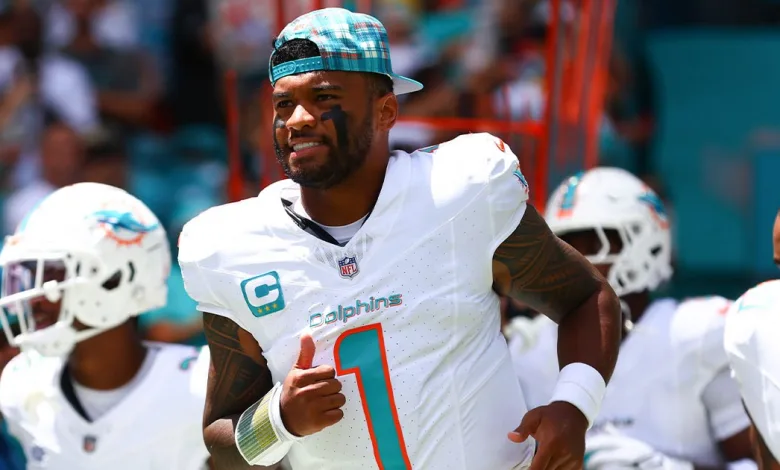How Many Concussions Has Tua Tagovailoa Had & Is It Too Many?

Fans are worried about how many concussions Tua Tagovailoa has had. This comes after the Miami Dolphins quarterback suffered a concussion in the game against the Buffalo Bills on September 13. His impact against the Bills safety Damar Hamlin left him down on the field for several minutes before being assisted off the field. However, this isn’t the first time Tagovailoa has been diagnosed with a concussion throughout his career, and many are asking whether he’s already received too many concussions and should perhaps retire.
How many concussions has Tua had in his career?
Officially, Tua Tagovailoa has sustained a total of four concussions, three during his NFL career and one in 2019 when he was with the Alabama Crimson Tide. Here’s a breakdown of his history with concussions in chronological order.
During a college game against Mississippi State on November 16, 2019, Tagovailoa was tackled by two defenders and fell awkwardly on the ground. Per ESPN, he dislocated and fractured his hip, broke his nose, and suffered a concussion.
During a game against the Buffalo Bills on September 25, 2022, the Miami Dolphins QB hit the back of his head on the ground and was taken to the locker room with a head injury. The NFLPA investigated the matter, believing that he was put back on the field too soon, and as noted by ESPN, it decided to fire an unaffiliated neurotrauma consultant who had evaluated him during the Bills game. However, this wasn’t officially marked as a concussion.
Later that season in a game against the Bengals, Tagovailoa took a sack in the second quarter against Josh Tapou that caused him to hit his ground partially with the back of his helmet. After being transported to the University of Cincinnati Medical Center, he was diagnosed with a concussion. If that weren’t enough, he sustained yet another concussion a few months later after a Christmas after against the Green Bay Packers.
As far as how many concussion are too many, doctors say that it depends on the patient. Mark Halstead, the director of the Sports Concussion Program at Washington University in St. Louis, said in 2022 that there’s no “magic number” in an interview with the Washington Post.
Repetitive blows to the head over a long period of time, particularly with players who frequently collide their helmets together in football, increases risks of various neurodegenerative diseases.
Source link
#Concussions #Tua #Tagovailoa




